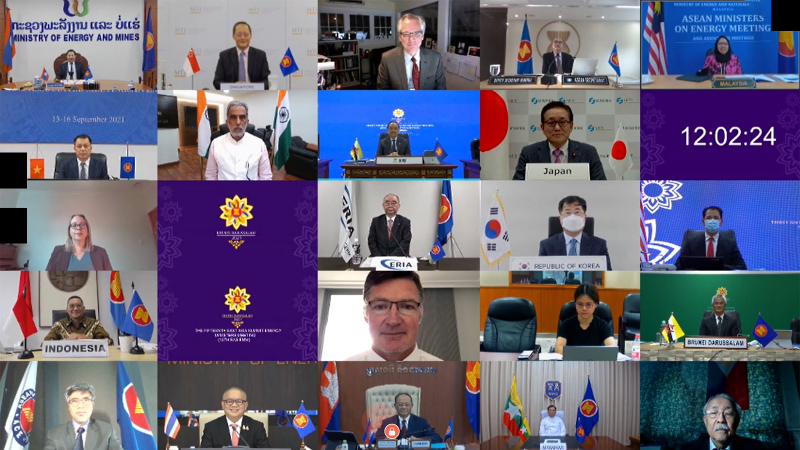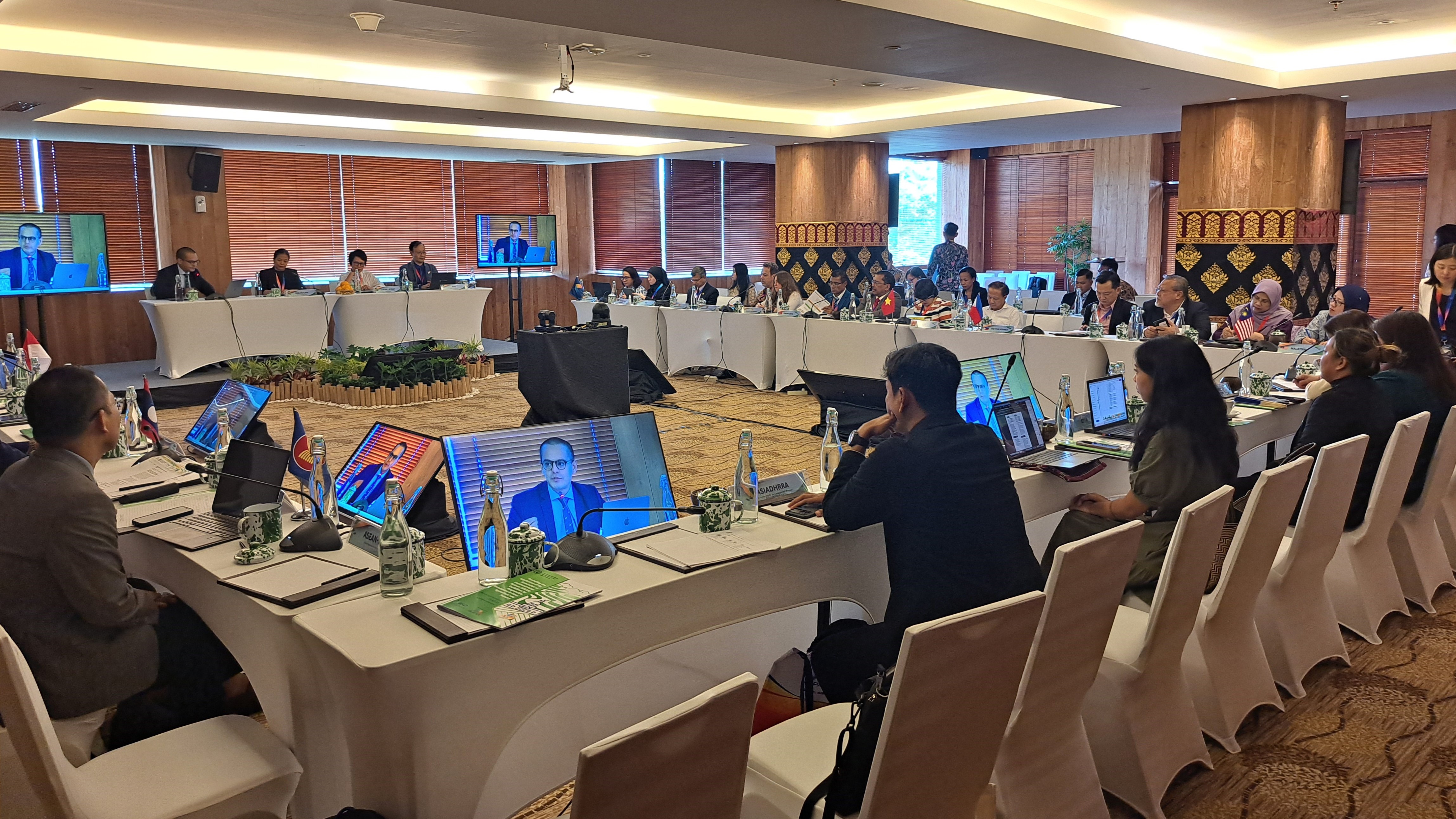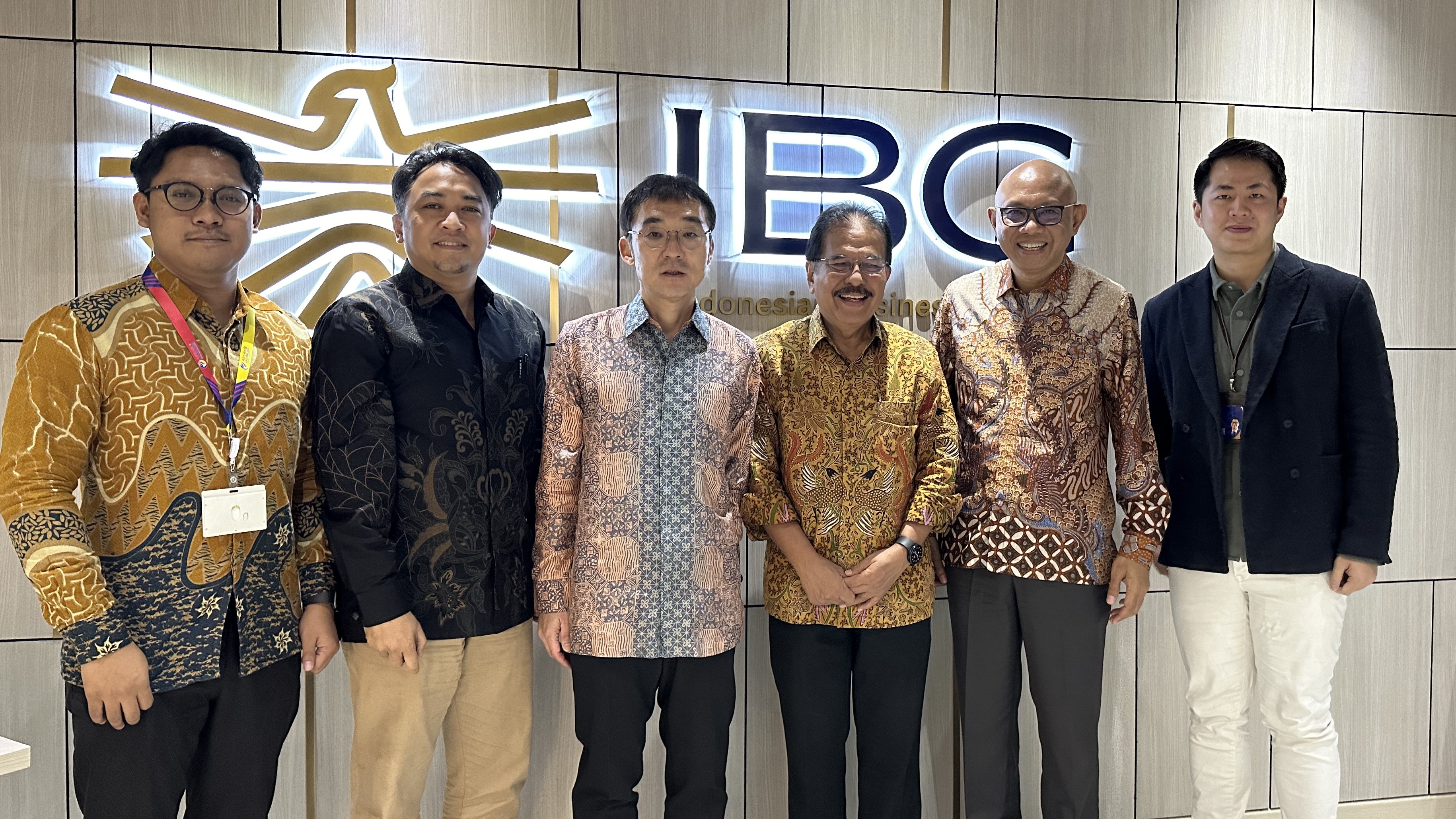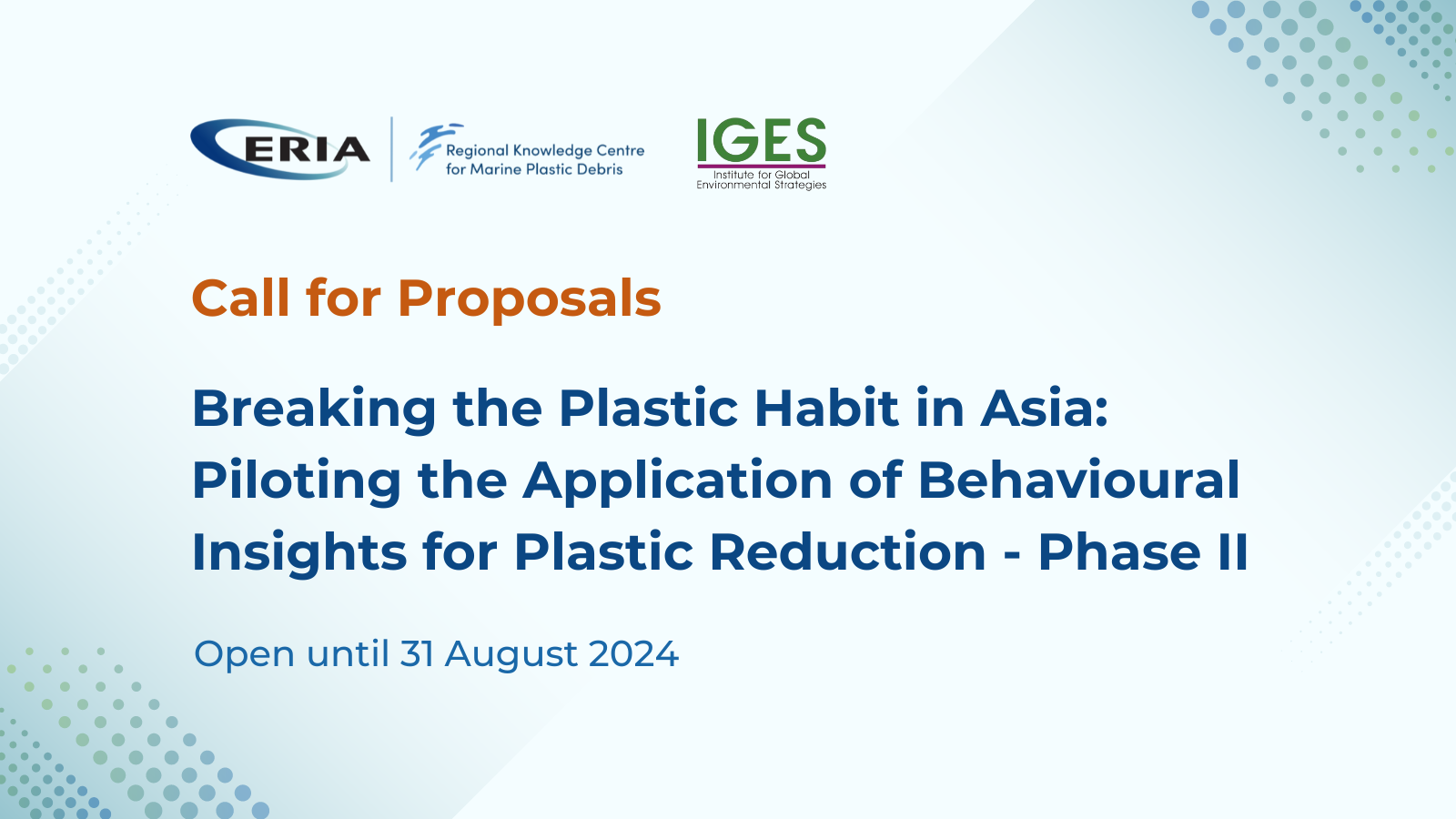ERIA Attends the 15th EAS Energy Ministerial Meeting
Share Article:
Print Article:
Bandar Seri Begawan, 16 September 2021: The 15th East Asia Summit – Energy Ministers Meeting (EAS EMM) was hosted virtually by the Ministry of Energy, Brunei Darussalam. The meeting was chaired by H.E. Dato Seri Setia Dr Awang Haji Mat Suny bin Haji Md Hussein, Minister of Energy, Brunei Darussalam. In his opening remark, his excellency explained that a major role of EAS EMM is to foster a new wave of multilateralism, paving the way for the promotion and enhancement of practical cooperation amongst energy institutions and organisations through three energy work streams: (1) energy efficiency and conservation, (2) biofuels for transport and other purposes, and (3) renewable and alternative power generation.
The Secretary-General of ASEAN, H.E. Dato Lim Jock Hoi, presented the key outcomes of the 15th EAS Summit and the 14th EAS EMM which were chaired by Viet Nam in 2020. All the leaders reaffirmed the commitment to advance partnerships in promoting sustainability within the region, particularly in addressing the adverse socio-economic impacts of COVID-19, and the contribution to energy transition, including the promotion of natural gas, hydrogen, carbon recycling, and carbon capture utilisation and storage (CCUS). Moreover, the issues of sustainability and climate change remains very high on the ASEAN agenda across all sectors and the ASEAN Working Group on climate change actively supports the AMS in implementing their NDCs, especially in the area of adaptation and resilience mitigation, technology transfer and climate change. The focus of ASEAN is still on expanding renewable investment and the development of the entire system of decarbonisation and carbon capture technologies and capacity to reduce the current dependency on fossil fuels.
Delegations from ASEAN and non-ASEAN member states, including Australia, China, India, Japan, New Zealand, Republic of Korea, and the United States, delivered remarks about their countries’ energy transition plans, policies, challenges, and efforts towards decarbonisation. Most of the states were committed to continue their efforts towards energy efficiency and renewable energy utilisation while ensuring security, accessibility, affordability, and reliability of energy supply. Power plants that rely on fossil fuels will continue to integrate clean technology. Apart from technology adoption, regional and international cooperation was highlighted during the dialogue. Investment in renewable energy and clean technology, as well as research and development, are also crucial aspects to accelerate the decarbonisation process within the region.
Prof Hidetoshi Nishimura, President of Economic Research Institute of ASEAN and East Asia (ERIA)’ conveyed the results of ERIA’s research on ASEAN Carbon Neutral Scenarios, and updates on the Asia CCUS Network. A project on ASEAN Low Carbon Energy Transition scenarios aimed to provide insights to ASEAN Member States on developing a carbon neutrality roadmap that reflects different national circumstances. Main policy lessons from the scenario analysis covered (1) energy saving and electrification in end-use sectors, combined with low-carbon power supply utilising all technologies, would be core strategies for decarbonising ASEAN energy systems, (2) during transition periods, various kinds of ‘low-carbon’ technologies can reduce CO2 emissions effectively, (3) cost reduction and international cooperation are essential for affordable decarbonisation, and (4) cost optimisation scenarios could be utilised as inputs for each country’s consideration of its unique transition pathway.
President Nishimura also updated the meeting on the Asia CCUS Network that was launched in June this year. Two knowledge-sharing conferences have been organised up to now. Lastly, the 4th East Asia Energy Forum focusing on ‘A Low-Carbon Energy Transition in the ASEAN Region’ was successfully convened by ERIA and Brunei on 13 September 2021. The results of the discussions in Session 1: Natural Gas and vRE as Transition Energy, Session 2: Hydrogen, Ammonia and CCUS as Supreme Energy, and Session 3: Net Zero Emission Scenarios of ASEAN Countries. The discussion has been summarised in a report
ERIA also participated in the EAS Energy Cooperation Task Force (EAS ECTF) which was held virtually on 14 September 2021 and was chaired by Brunei, Pengiran Haji Jamra Weira Bin Pengiran Haji Petra. The meeting emphasised countries’ pathways and collective actions towards climate-resilient energy systems for decarbonisation. EAS ECTF will also have joint research with ERIA for 2020-2023 ‘Analysis of EAS Future Mobility Fuel Scenario Considering the Sustainable Use for Biofuels and Other Alternative Vehicle Fuels’, with the objective of future scenarios analysis of EAS mobility which highly contribute to SDGs (7,12, and 13) considering the balance between transport CO2 reduction, biofuel use, and minerals resources demand.
The next 16th EAS Energy Ministerial Meeting and associated meetings will be hosted in 2022 in Cambodia.








